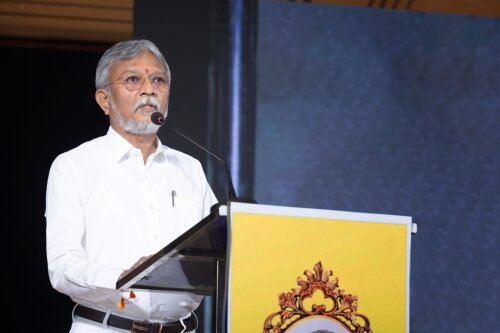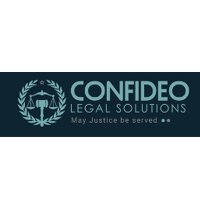Best Child Abuse Lawyers in Coimbatore
Share your needs with us, get contacted by law firms.
Free. Takes 2 min.
Free Guide to Hiring a Family Lawyer
List of the best lawyers in Coimbatore, India
About Child Abuse Law in Coimbatore, India
Child abuse-encompassing physical, emotional, sexual abuse, and neglect-is a serious issue in Coimbatore, as in the rest of India. Coimbatore, situated in Tamil Nadu, is governed by Indian national laws that are enforced by local authorities. The city follows comprehensive child protection statutes meant to safeguard children from any form of harm or exploitation. Cases of abuse may arise in homes, schools, or institutions, making it crucial for local communities to be aware of how the law protects children and what actions can be taken against abusers.
Why You May Need a Lawyer
Whether you are a victim, a concerned parent, guardian, or even someone accused of child abuse, legal assistance is often necessary in navigating complex legal procedures. You may need a lawyer if you are:
- Reporting a case of child abuse to the authorities
- Defending yourself against a child abuse allegation
- Seeking child custody in light of abuse allegations
- Negotiating with institutional authorities, schools, or social welfare agencies
- Filing an appeal or complaint when authorities fail to act
- Advising organizations on child protection policies and compliance
A qualified lawyer can help you understand your rights, gather evidence, file complaints, represent you in court, and ensure that the legal process is followed correctly.
Local Laws Overview
Coimbatore, being part of India, upholds all national child protection and abuse laws. The main laws that protect children from abuse include:
- Protection of Children from Sexual Offences (POCSO) Act, 2012: A comprehensive law that addresses all forms of sexual abuse and exploitation of children below 18 years of age.
- Juvenile Justice (Care and Protection of Children) Act, 2015: Focuses on children in need of care, protection, and those in conflict with the law. It prescribes procedures and institutional care for victims.
- Indian Penal Code (IPC): Contains specific sections that deal with physical assault, cruelty, exploitation, abandonment, and harassment of children.
- Right to Education Act, 2009: Prohibits corporal punishment and mental harassment of students in schools.
- Tamil Nadu Government Orders: Local government also passes supplementary rules and provides resources through the District Child Protection Unit (DCPU).
The local police, Child Welfare Committees (CWCs), and Special Juvenile Police Units are key authorities for immediate assistance in Coimbatore. Reporting can be done directly at police stations, through helplines, or via dedicated child protection officers.
Frequently Asked Questions
What constitutes child abuse in Coimbatore, India?
Child abuse includes physical, emotional, or sexual harm, exploitation, and neglect suffered by a person under 18 years of age. It can occur in families, schools, institutions, or the community.
What should I do if I suspect a child is being abused?
Immediately report your suspicions to the nearest police station, the District Child Protection Unit, or the Childline helpline (1098). You do not need proof to bring your concerns forward.
Are children’s statements taken seriously by the police and courts?
Yes, children’s statements are given special consideration under the law. Authorities are trained to record their statements in a child-friendly way and to ensure their comfort and safety during the process.
Who can file a complaint about child abuse?
Anyone-family, teachers, neighbors, medical professionals, or even a bystander-can file a complaint. The law encourages mandatory reporting by professionals working with children.
How soon should I take legal action after an incident of abuse?
You should act as quickly as possible to ensure the child’s safety and to preserve evidence. Delays could put the child at additional risk and can weaken the case.
Will the identity of the victim and complainant be kept confidential?
Yes, laws such as the POCSO Act mandate strict confidentiality regarding the identities of victims and complainants to protect their privacy.
What is the role of the District Child Protection Unit (DCPU) in Coimbatore?
DCPU coordinates child protection activities, supports victims, facilitates institutional care, and works with law enforcement on rehabilitation and legal matters.
Are there special courts for child abuse cases?
Yes, POCSO courts and designated children’s courts handle child abuse cases to ensure a sensitive and speedy trial. Judges and staff are trained to work with children.
Can a lawyer help in getting compensation or rehabilitation for the victim?
Lawyers can guide you in claiming compensation under applicable schemes and ensure access to rehabilitation, counseling, and other support services for the victim.
What if the abuse occurred in an institution or school?
Report the abuse to authorities and the police immediately. The management of institutions can also be held legally accountable for failing to protect children or for concealing crimes.
Additional Resources
Several organizations and governmental bodies in Coimbatore offer assistance and guidance for child abuse cases:
- District Child Protection Unit (DCPU), Coimbatore
- ChildLine Helpline: 1098 (24/7 toll-free emergency helpline for children)
- Child Welfare Committee (CWC), Coimbatore
- Vanavani All Women Police Station
- State Commission for Protection of Child Rights (SCPCR), Tamil Nadu
- Local NGOs such as Aram Foundation and C3, Coimbatore
- Legal Aid Services offered by District Legal Services Authority
These bodies can provide emergency care, counseling, legal help, and protection for children in need.
Next Steps
If you or someone you know needs legal assistance related to child abuse in Coimbatore, here’s how to proceed:
- Ensure Immediate Safety: If a child is in immediate danger, call 1098 or approach the nearest police station without delay.
- Document Details: Keep a written record of all relevant details-dates, places, descriptions, and any available evidence.
- Reach Out for Help: Contact DCPU, CWC, or a local NGO for support and guidance.
- Consult a Lawyer: Approach a lawyer experienced in child protection cases, either through referrals, local bar associations, or legal aid services.
- Follow Legal Process: File a formal complaint (FIR) with the police and cooperate in the investigation.
- Support Recovery: Ensure the child receives counseling and, if needed, medical care and rehabilitation through local support services.
Taking timely legal action is critical in ensuring justice and protection for children. Even if you are unsure of the severity, consulting with a professional can clarify your situation and options.
Lawzana helps you find the best lawyers and law firms in Coimbatore through a curated and pre-screened list of qualified legal professionals. Our platform offers rankings and detailed profiles of attorneys and law firms, allowing you to compare based on practice areas, including Child Abuse, experience, and client feedback.
Each profile includes a description of the firm's areas of practice, client reviews, team members and partners, year of establishment, spoken languages, office locations, contact information, social media presence, and any published articles or resources. Most firms on our platform speak English and are experienced in both local and international legal matters.
Get a quote from top-rated law firms in Coimbatore, India — quickly, securely, and without unnecessary hassle.
Disclaimer:
The information provided on this page is for general informational purposes only and does not constitute legal advice. While we strive to ensure the accuracy and relevance of the content, legal information may change over time, and interpretations of the law can vary. You should always consult with a qualified legal professional for advice specific to your situation.
We disclaim all liability for actions taken or not taken based on the content of this page. If you believe any information is incorrect or outdated, please contact us, and we will review and update it where appropriate.












